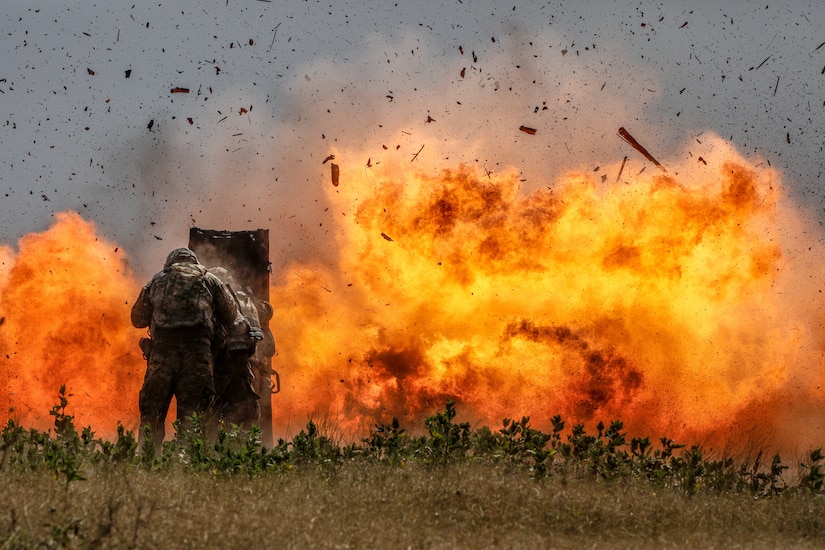By Army Maj. Carson Petry, 2nd Brigade Combat Team, 1st
Cavalry Division
FORT HOOD, Texas -- Army combat engineers produced flaming
booms and prodigious smoke plumes during a training exercise at the Curry
Demolition Range here.
Soldiers from Alpha Company, 8th Engineer Battalion, 2nd
Brigade Combat Team, 1st Cavalry Division conducted demolition training July
14-17.“This week we’ve conducted demolitions and squad movements,” Army Staff
Sgt. Charles Marsch, a squad leader with A Company, 8th Brigade Engineer
Battalion said during the exercise. “But today is the culmination of a week in
the field. The purpose is to get the soldiers familiar with different ways to
demo.”
Explosives Experts
Deployed Army combat engineers conduct route clearance
operations to uncover improvised explosive devices, and they’re also experts at
breaching operations, using high explosives in a variety of means.
Countless hours are spent in the classroom discussing safety
and theory, but hands-on training gives combat engineers the confidence and
experience required to be effective during combat operations.
The explosive strength of a demolition charge depends on the
type of obstacle a combat engineer must breach, Marsch said, noting that
breaching a barrier gives maneuver forces the most expedient way to close with
and destroy the enemy. Such work, he said, requires technical expertise in
handling and creating explosive charges.
The soldiers have trained on the Bangalore torpedo, as well
as concrete charges, Marsch said. The Bangalore is torpedo-shaped featuring C4
explosive and detonation cord, he explained.
‘Everything Goes Away’
“You lay that on top of the obstacle, and everything goes
away,” Marsch said. “When we come up to an obstacle, the enemy likes to use
concertina wire. The Bangalore clears the lane for the tanks. It makes the
lanes faster, smoother and safer.”
A concrete charge, he said, is an urban-use demolition
charge that blasts through walls. It leaves a hole in the wall, allowing
infantry forces a way in.
The combat engineers enjoy demolition training, he said.
“This training means a lot to me,” Army Spc. Hunter Goodall
said. Learning how to apply a concrete charge during the exercise made him feel
more confident, he added.

No comments:
Post a Comment